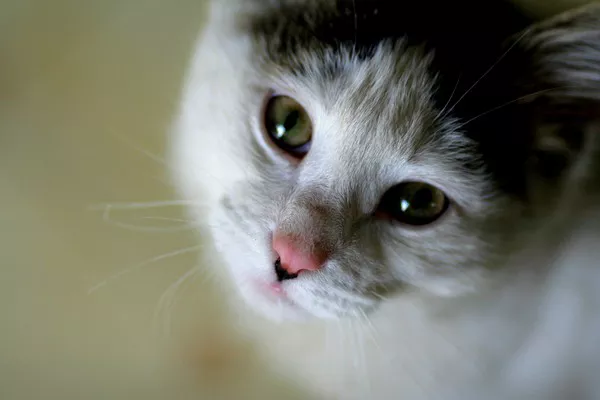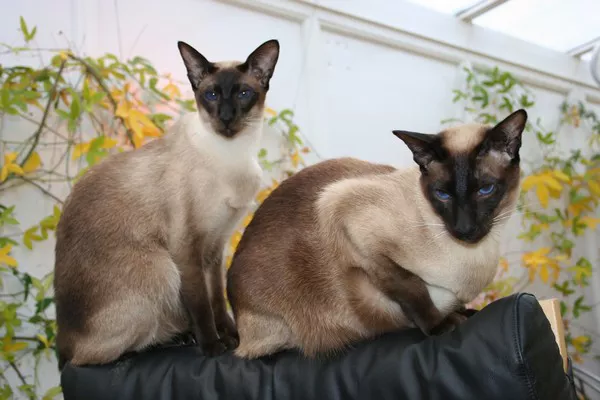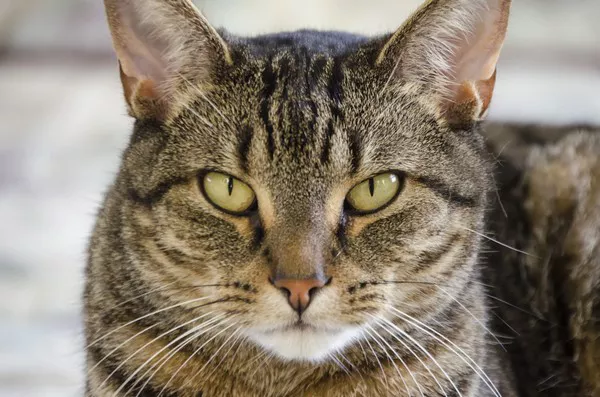Domestic long hair cats are beloved for their luxurious, silky fur and their affectionate, independent personalities. Known for their stunning coats, these cats can often be found in homes across the world, offering comfort and companionship. However, just like any other breed, domestic long hair cats are susceptible to various health problems. These issues can range from minor concerns that are easily addressed to more serious conditions that require immediate veterinary care.
In this article, we will explore common health issues faced by domestic long hair cats, identify the symptoms to watch for, and discuss treatment options. Additionally, we will cover preventive measures that can help keep your cat healthy and tips for maintaining proper grooming and care at home. Understanding these health challenges and knowing how to address them can ensure your domestic long hair cat remains happy and well-cared-for.
Common Health Issues in Domestic Long Hair Cats
Domestic long hair cats, due to their thick coats and unique body structure, are prone to several common health issues. Understanding these problems is crucial for maintaining your cat’s health and well-being.
1. Urinary Tract Infections (UTIs)
Urinary tract infections are one of the most common health problems in cats, including domestic long hair cats. UTIs can affect any part of the urinary tract, including the kidneys, bladder, urethra, or ureters. This condition is more prevalent in cats that are stressed, have poor hydration, or are prone to obesity.
2. Dental Issues
Dental health is often overlooked in cats, but it is just as important as their overall well-being. Domestic long hair cats are prone to developing dental problems such as periodontal disease, tartar buildup, and gingivitis. These issues can lead to severe pain, tooth loss, and systemic infections if left untreated.
3. Skin Conditions
Domestic long hair cats, with their thick coats, are more susceptible to skin conditions such as flea infestations, allergies, and fungal infections. The density of their fur can make it difficult to detect signs of skin irritation, which is why regular grooming is essential for preventing these issues.
4. Digestive Problems
Cats, in general, are known to have sensitive digestive systems, and domestic long hair cats are no exception. Digestive issues such as vomiting, diarrhea, constipation, and food allergies are common in long-haired cats. These issues can arise from diet, stress, or underlying health conditions.
Symptoms to Watch For
Recognizing the symptoms of health issues early can make a significant difference in the treatment and recovery of your domestic long hair cat. Each health issue has its own set of symptoms to watch for. By knowing what to look for, you can take timely action and seek appropriate care.
1. Urinary Tract Infections (UTIs)
Frequent urination: Your cat may attempt to urinate more often than usual.
Straining to urinate: This can be a sign that your cat is experiencing discomfort.
Blood in urine: You may notice traces of blood in the litter box or when your cat urinates.
Urinary accidents: Cats with UTIs may urinate outside their litter box due to the discomfort they feel.
2. Dental Issues
Bad breath: Foul-smelling breath is often one of the first signs of dental problems.
Excessive drooling: If your cat is drooling more than usual, it may indicate dental discomfort.
Difficulty eating: If your cat avoids eating or seems to be in pain when chewing, it may be a sign of dental issues.
Red, swollen gums: Gingivitis and other periodontal issues can cause noticeable inflammation in the gums.
3. Skin Conditions
Itching and scratching: Persistent scratching, licking, or biting at the skin may indicate allergies or flea infestations.
Hair loss: Patchy or excessive hair loss can be a sign of skin infections or parasites.
Redness or rashes: Inflammation, bumps, or rashes on the skin can indicate an allergic reaction or fungal infection.
Scabs or sores: Open sores or scabs on the skin can result from excessive scratching or a more serious infection.
4. Digestive Problems
Vomiting: Frequent vomiting may indicate gastrointestinal issues, food intolerance, or more serious health conditions.
Diarrhea: Loose stools can result from a variety of causes, including food changes, stress, or infections.
Constipation: If your cat is straining to defecate or producing small, hard stools, it may be dealing with constipation.
Loss of appetite: Cats with digestive issues may show a decreased appetite or refuse to eat altogether.
Treatment Options
If you notice any of the symptoms discussed above, it’s important to take your cat to the veterinarian for a proper diagnosis and treatment. Your veterinarian will evaluate your cat’s overall health, conduct tests if needed, and recommend the best course of action.
1. Veterinary Care
The most crucial aspect of treating any health issue in your domestic long hair cat is consulting a veterinarian. A vet will perform a thorough examination, run diagnostic tests (such as urine tests, blood work, or X-rays), and provide a treatment plan tailored to your cat’s needs.
Regular veterinary check-ups are essential, even if your cat does not exhibit any symptoms, as many conditions can be detected early before they become more serious.
2. Medications
Your veterinarian may prescribe medications to treat a variety of health issues. For example:
Antibiotics: Used to treat urinary tract infections and other bacterial infections.
Pain relief: If your cat is suffering from dental pain or arthritis, your vet may prescribe pain medication.
Flea treatments: Medications like topical flea treatments, oral flea preventatives, or flea collars can address flea infestations.
Antacids and digestive aids: Medications to manage gastrointestinal issues, such as vomiting or diarrhea, may be necessary.
3. Home Care
Along with professional veterinary treatment, you can provide support and care at home. For example:
Administering medications: If your cat is prescribed medication, follow your veterinarian’s instructions for dosage and administration. You may need to hide pills in food or use a pill dispenser.
Monitoring symptoms: Keep track of your cat’s symptoms and behaviors, noting any changes. This can help your vet gauge the effectiveness of the treatment.
Preventive Measures
Preventive care is essential for keeping your domestic long hair cat healthy. By implementing a few key practices, you can help minimize the risk of health issues and improve your cat’s quality of life.
1. Regular Veterinary Check-ups and Vaccinations
Regular veterinary visits are critical for detecting early signs of illness and keeping vaccinations up to date. Annual wellness exams can help your veterinarian monitor your cat’s overall health, check for parasites, and ensure that any potential health concerns are addressed early.
2. Balanced Diet and Proper Hydration
A healthy diet plays a vital role in your cat’s overall health. Ensure that your domestic long hair cat is eating a balanced, high-quality diet that meets their nutritional needs. Always provide fresh water to keep your cat well-hydrated, as dehydration can lead to a host of health issues, including urinary tract problems.
3. Clean and Stress-Free Environment
Domestic long hair cats are sensitive to their environment. Maintaining a clean and quiet environment will help reduce stress and minimize the risk of skin conditions, allergies, or gastrointestinal issues. Ensure that your cat has a clean litter box and a calm space to retreat to when feeling overwhelmed.
Grooming Needs
Domestic long hair cats have a distinctive grooming requirement due to their thick, luxurious coats. Regular grooming is essential to prevent mats, tangles, and skin infections, which are common problems for long-haired cats.
1. Importance of Regular Grooming
Long-haired cats are more prone to matting, especially in areas where their fur rubs against furniture or bedding. Mats can cause skin irritation and are a breeding ground for bacteria. Regular grooming prevents these issues and keeps your cat’s coat shiny and healthy.
2. How to Properly Brush and Bathe Your Domestic Long Hair Cat
Brushing your cat’s coat regularly, ideally once a day, will help prevent tangles and mats. Use a wide-tooth comb or a de-matting brush to work through the fur gently. Be sure to brush in the direction of the hair growth, paying extra attention to areas like the belly and under the legs.
Bathing should be done only when necessary. Use a cat-safe shampoo, as human products can irritate their skin. Ensure that your cat is fully dry after bathing to avoid skin irritation.
3. Professional Grooming Services
If grooming becomes too challenging or if your cat’s coat is severely matted, consider seeking professional grooming services. Groomers have the tools and expertise to properly care for your cat’s coat and can provide trims or treatments that might be difficult to manage at home.
Conclusion
Domestic long hair cats, while beautiful and affectionate, can be prone to several health issues, ranging from urinary tract infections to digestive problems and dental conditions. Understanding the common health issues and recognizing the symptoms early can help you seek the right treatment in time. Regular veterinary care, a balanced diet, a clean environment, and proper grooming are key components in maintaining your cat’s overall health. Remember, when it comes to cat health, your involvement and awareness play an integral role in keeping your feline friend in optimal condition.
Related Topics



























